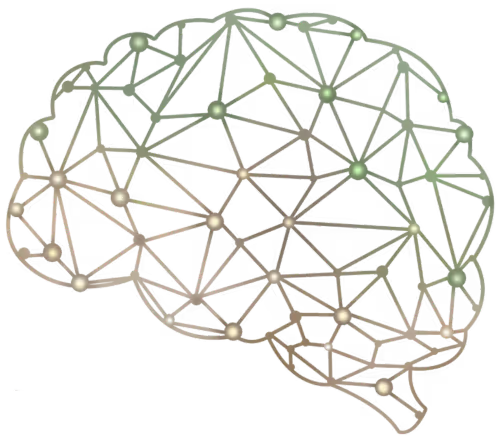Concussions are a common occurrence, with an estimated 3.8 million concussions reported annually in the U.S. due to sports and recreational activities alone. While many people recover from concussions within a few weeks, about 10-20% of individuals experience prolonged symptoms, leading to post-concussion syndrome (PCS). This condition can persist for weeks, months, or even longer, affecting a person’s ability to function normally in daily life.
Post-concussion syndrome is a complex disorder that arises after a traumatic brain injury (TBI), such as a concussion. While most individuals recover from the immediate effects of a concussion within a few weeks, those with PCS experience lingering symptoms that can include headaches, dizziness, fatigue, cognitive difficulties, and emotional disturbances. These symptoms are the result of disrupted neural connections and ongoing brain inflammation, making it difficult for the brain to fully heal on its own.
Early intervention and comprehensive treatment are critical for managing PCS effectively. Left untreated, PCS can disrupt an individual’s cognitive, physical, and emotional well-being. People with PCS may struggle with memory, concentration, and mood regulation, which can hinder their ability to work, study, or engage in social activities. Additionally, persistent physical symptoms such as headaches or dizziness can further complicate recovery. Addressing PCS with a tailored and multidisciplinary approach, such as functional neurology, can accelerate recovery and improve overall quality of life. By targeting the underlying neural dysfunctions and promoting brain healing, individuals can regain mental clarity, emotional balance, and physical well-being more efficiently.
Understanding Post-Concussion Syndrome
Causes and Symptoms of PCS
Causes
Post-concussion syndrome (PCS) typically results from a traumatic brain injury (TBI), which occurs when a forceful impact causes the brain to be shaken inside the skull. This sudden movement can damage brain cells and neural pathways, disrupting normal brain function. The injury can also impair blood flow to the brain, contributing to inflammation and further affecting the brain’s ability to communicate effectively. While most people recover within a few weeks of the initial injury, some individuals develop PCS, where symptoms persist for an extended period.
Symptoms
PCS can manifest through a variety of physical, cognitive, and emotional symptoms. Common symptoms include:
- Headaches: Often similar to migraines or tension headaches.
- Dizziness: A frequent feeling of lightheadedness or vertigo.
- Fatigue: Persistent tiredness, even after adequate rest.
- Cognitive issues: Problems with memory, concentration, or processing information.
- Emotional disturbances: Symptoms such as anxiety, depression, irritability, or sudden mood changes.
- Sleep disturbances: Difficulty falling asleep or staying asleep, which can worsen other symptoms.
The Brain’s Response to Concussion
Neurophysiological Changes
When the brain experiences a concussion, its normal function is disrupted at a cellular level. Neural pathways, which carry signals between different parts of the brain, may become damaged, affecting communication between various brain regions. Additionally, concussions can lead to reduced blood flow to the brain, limiting the oxygen and nutrients necessary for recovery. Inflammation within the brain further complicates this process, as the body’s response to injury can exacerbate swelling and pressure inside the skull.
Why Symptoms Persist
In cases of PCS, these neurophysiological changes often take longer to resolve, leading to ongoing symptoms. Damaged neural connections struggle to repair themselves, slowing down the brain’s recovery process. Chronic inflammation may also persist, contributing to symptoms like headaches and cognitive fog. The brain’s delicate balance of neurotransmitters and electrical activity becomes disrupted, making it harder for individuals to regain full functionality and return to normal daily activities. This extended recovery period is what characterizes post-concussion syndrome, with symptoms lingering far beyond the typical recovery window for a concussion.
Functional Neurology’s Approach to Post-Concussion Syndrome
What is Functional Neurology?
Functional neurology is a specialized field of healthcare that focuses on optimizing brain and nervous system function through non-invasive therapies and targeted exercises. Unlike traditional approaches that often rely on medication to manage symptoms, functional neurology seeks to address the root cause of neurological dysfunction by promoting the brain’s natural ability to heal and reorganize itself. Functional neurology therapies are highly personalized and aim to restore the brain’s optimal function, particularly in individuals with conditions like post-concussion syndrome (PCS).
While conventional treatments for PCS often focus on managing symptoms (such as prescribing medication for headaches or dizziness), functional neurology takes a more holistic and personalized approach. It begins with an in-depth assessment of the patient’s unique brain function and identifies specific areas of dysfunction. Instead of a one-size-fits-all method, functional neurology tailors therapies to target these specific areas, using techniques that promote the brain’s ability to heal through stimulation and neuroplasticity. This approach emphasizes long-term recovery and functional improvements rather than just temporary symptom relief.
Targeting Neuroplasticity for Recovery
Neuroplasticity refers to the brain’s remarkable ability to reorganize and form new neural connections in response to injury or learning. This concept is central to functional neurology, particularly in the treatment of PCS. By leveraging neuroplasticity, functional neurology encourages the brain to repair itself, helping patients recover from the long-term effects of concussions. Neuroplasticity allows the brain to compensate for damaged areas by creating new pathways, enabling improved cognitive function, motor skills, and emotional regulation.
Rebuilding Neural Pathways
In functional neurology, patients engage in targeted exercises and therapies designed to stimulate specific areas of the brain that have been affected by the concussion. These therapies help to rebuild damaged neural connections and improve brain function by gradually strengthening weak or impaired areas. Over time, these exercises can reduce inflammation, restore balance, and enhance overall brain health, allowing individuals to recover more fully from PCS. This neuroplasticity-based approach helps patients regain mental clarity, emotional balance, and physical coordination that may have been compromised by the injury.
Functional Neurology Assessments
Comprehensive Brain Assessments
Functional neurology begins with a thorough evaluation of the patient’s brain function, which goes beyond typical medical exams. Functional neurologists assess a range of neurological functions, including eye movements, balance, coordination, and cognitive processing. These assessments help pinpoint the exact areas of the brain that have been impacted by the concussion and are contributing to persistent symptoms. For instance, testing vestibular (balance) function can identify why a patient is experiencing dizziness, while cognitive tests can reveal specific difficulties with memory or focus.
Customized Treatment Plans
Based on the results of these assessments, functional neurologists create highly personalized treatment plans that focus on the individual’s specific needs. These plans may include therapies to stimulate areas of the brain responsible for movement, coordination, or cognition, as well as exercises to enhance sensory processing and balance. By addressing the unique brain dysfunctions identified during the assessment, functional neurology offers a targeted approach to recovery, helping patients regain normal function and reduce their PCS symptoms more effectively. This personalized care ensures that the treatment plan is tailored to promote the patient’s neuroplasticity and overall recovery.
Functional Neurology Treatment Strategies for PCS
Sensory Integration Therapy
Sensory integration therapy is designed to help the brain process and respond to sensory input more effectively by targeting areas of dysfunction in vision, the vestibular (balance) system, and proprioception (body awareness). PCS often disrupts these systems, leading to symptoms like dizziness, imbalance, and sensory overload. Sensory integration therapy involves exercises that re-train the brain to interpret and integrate information from the senses more efficiently. For instance, visual tracking exercises can help restore eye movement coordination, while balance drills can recalibrate the brain’s sense of body position.
Benefits for PCS
For patients with PCS, sensory integration therapy can significantly reduce symptoms like dizziness, light sensitivity, and balance problems. By improving the brain’s ability to process sensory information, this therapy enhances cognitive clarity, allowing patients to think more clearly and focus better. It also helps stabilize the body’s equilibrium, reducing feelings of disorientation and improving physical coordination, which is often impaired after a concussion.
Vestibular Rehabilitation
Addressing Balance and Dizziness
Vestibular rehabilitation focuses on retraining the brain to control balance and spatial orientation—functions often disrupted in individuals with PCS. This therapy involves exercises designed to challenge and improve the vestibular system’s ability to manage head movements, spatial awareness, and equilibrium. Patients practice movements that involve gaze stabilization, head turns, and posture adjustments to help recalibrate the brain’s control over balance.
Reducing Vertigo and Motion Sensitivity
Vestibular rehabilitation can dramatically reduce vertigo and motion sensitivity, common symptoms in PCS patients. By gradually exposing the brain to controlled movements and sensory stimuli, this therapy helps desensitize the vestibular system, making patients less prone to dizziness and discomfort caused by motion. Over time, patients experience fewer episodes of vertigo, allowing them to regain confidence in their physical movements and daily activities.
Cognitive Therapy and Brain Training
Improving Cognitive Function
Cognitive impairments such as memory loss, poor concentration, and difficulty with problem-solving are common in PCS. Cognitive therapy and brain training exercises are key components of functional neurology aimed at restoring these functions. Patients work through exercises that target specific cognitive areas, such as memory games, concentration tasks, and problem-solving activities. These tasks stimulate brain activity in areas that may have been weakened by the concussion, helping patients rebuild their mental abilities.
Strengthening Brain Resilience
By regularly engaging in cognitive therapy and brain training, patients stimulate neuroplasticity, encouraging the brain to adapt and form new neural connections. This leads to improved cognitive resilience, allowing the brain to function more efficiently under stress or during complex tasks. Over time, patients experience enhanced memory, focus, and cognitive sharpness, which are often compromised in PCS.
Supporting Brain Health Through Diet
Functional neurology recognizes the critical role of nutrition in brain health. Incorporating an anti-inflammatory diet—rich in whole foods, omega-3 fatty acids, antioxidants, and essential vitamins—helps reduce brain inflammation and supports neural repair. Foods like fatty fish, leafy greens, nuts, and berries are particularly beneficial for brain recovery. In some cases, nutritional supplementation (such as magnesium, B vitamins, and omega-3 supplements) may be recommended to support cognitive function and reduce fatigue.
Promoting Rest and Recovery
Rest and stress management are crucial to PCS recovery, as the brain needs time to heal from injury. Functional neurology emphasizes the importance of adequate sleep, reduced screen time, and regular relaxation techniques like mindfulness and meditation to promote mental and physical recovery. Additionally, stress reduction through relaxation techniques can reduce cortisol levels, minimizing further brain inflammation and aiding in the healing process. Prioritizing recovery time allows the brain to reset, reducing the severity of PCS symptoms and improving overall well-being.

.jpg)
.png)


